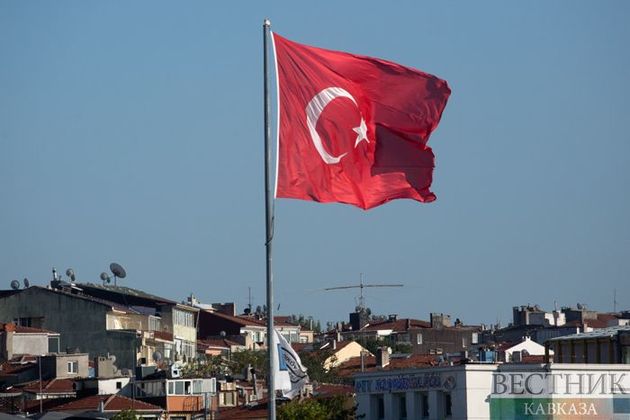Turkish companies got the green light to use three significant ore deposits in the Karabakh region of Azerbaijan after the signing of contracts with the Economy Ministry of Azerbaijan this week, Caspian News reports. The Eti Bakır A.Ş. Company, the largest operator in the Turkish mining and metallurgy industry, will carry out study, research, exploration, development, and exploitation activities at the Gashgachay deposit. The same rights were given to the Artvin Maden A.Ş. company at the Elbaydash and Aghduzdagh fields. The lifespan of both contracts is 30 years as defined in a presidential decree signed on May 29, 2021.
“We believe that this important step will play a vital role in launching the extractive industry in our liberated territories, facilitating the exploration of high-potential fields and encouraging their contribution to our economy. It will also accelerate the economic reintegration of the region,” Azerbaijan’s Economy Minister Mikayil Jabbarov tweeted on Thursday.
The Aghduzdagh ore deposit is located southeast of Kalbajar, one of the districts liberated from Armenian occupation by the Azerbaijani army in the last year’s war. The deposit reportedly has a simple mineral composition. About 100 gold-quartz and quartz-carbonate veins are said to have disseminated in the field. Significant industrial gold mineralization has been identified in 5 of the veins.
The dominant mineral in the ore veins of Aghduzdagh is quartz, comprising 95–98 percent of the total ore mass. Other minerals such as pyrite, chalcopyrite, sphalerite, galena, magnetite, free-milling gold, altaite, aikinite, mercury, and others account for 2-3 percent. Gold ores in Aghduzdagh are found in two classifications – pure gold and gold electrum, which contain 35-40 percent of silver.
The Elbaydash copper-polymetal deposit and the Gashgachay fields are both located at the slopes of the Murovdagh mountain range on the northern edge of the Karabakh region.
Mineral reserves in Azerbaijan's Karabakh (Garabagh) region had long been illegally exploited by Armenia. According to the reports, Azerbaijan was unable to use 1,250 tons of gold, 4,550 tons of silver, 1.84 million tons of copper, 662,000 tons of lead, 775,000 tons of zinc, 152,000 tons of cobalt, 2.25 million tons of chromium, as well as 189 million cubic meters of sawn stone, 1.5 million tons of clay, 4 tons of mercury, 130 million cubic meters of soda limestone, and 147 million tons of cement raw material reserves in the Karabakh region due to three decades of illegal Armenian occupation. Johns Hopkins University in the United States estimates that the Jabrayil and Zangilan districts alone have 150 million tons of oil and 258 billion cubic meters of natural gas reserves, as well.
Tens of Armenian and other foreign companies were involved in the illicit operations at more than 60 mineral fields in previously occupied Kalbajar, Zangilan, Lachin, Khojavand and other districts of Azerbaijan.
Azerbaijan’s Karabakh (Garabagh) region fell under Armenia’s occupation in the early 1990s during a bloody war that lasted until a ceasefire deal was reached in 1994. As a result, Armenia occupied 20 percent of Azerbaijan’s internationally recognized territories. Over 30,000 ethnic Azerbaijanis were killed, and one million were expelled from those lands in a brutal ethnic cleansing policy carried out by Armenia.
On September 27, 2020, the decades-old conflict between the two countries spiraled after Armenia’s forces deployed in the occupied Azerbaijani lands shelled military positions and civilian settlements of Azerbaijan. During the counter-attack operations that lasted 44 days, Azerbaijani forces liberated over 300 settlements, including the cities of Jabrayil, Fuzuli, Zangilan, Gubadli, and Shusha, from nearly 30-year-long illegal Armenian occupation. The war ended in a tripartite statement signed on November 10 by Armenia, Azerbaijan, and Russia. Under the statement, Armenia also returned the occupied Aghdam, Kalbajar, and Lachin districts to Azerbaijan.
The liberation of the once occupied lands by the Azerbaijani army last year also restored the control over vast ore deposits in the Karabakh region.






